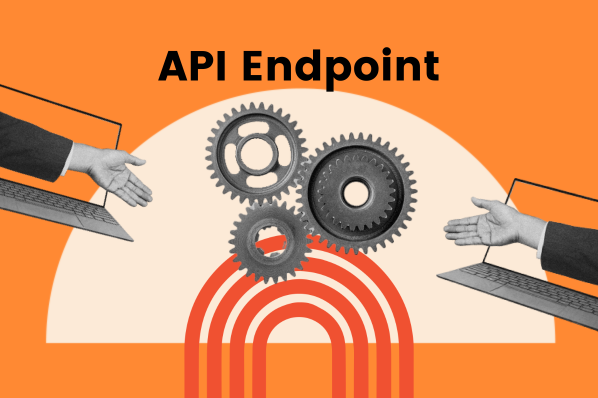The emergence of the API economy has revolutionized the way companies scale, which is why those looking to elevate their business should consider how to harness its power.

It's understandable, however, if you have questions such as, “What is the API economy? Why is it important? What are the benefits, and are there any potential drawbacks?” If you’re looking for answers to those important questions, you’re in the right place, as this post will provide an overview of the API economy.
We're here to help you get the answers necessary to enable your website and, ultimately, your business to grow better. So, here's the API economy explained.
What is the API economy?
To fully understand API economy, it's helpful to first reflect on the term 'API' itself. An application programming interface, or API, is a set of rules that enables data extraction from software to be utilized in another application. Thanks to APIs, your application can connect and communicate with other software friction-free. Because APIs allow for seamless, rapid integration, they're significantly valuable for website (and mobile app!) development.
We use APIs every day for tasks as simple as tracking our location using Google Maps when taking a rideshare.
API Economy
This buzzy term refers to the increasingly prevalent business model centered around the usage of APIs in the digital economy. As a result, a company's digital assets and services are controlled and exposed strategically.
What is the open API economy?
You might have heard of the API economy before, but what about the open API economy? To understand this, first consider the definition of an open API. An open (sometimes referred to as public) API is publicly available for the use of software developers.
Today's businesses value data integration to achieve more comprehensive insights and ultimately provide more value. This, and progress in the digital world, gave way to the concept of the open API economy.
Open API Economy
In the open API economy, companies include the management of APIs in business strategy. The result is an effortless communication between services and the company's prized possession: data.
What are some benefits and drawbacks of the API economy?
A 2020 survey revealed that almost 40% of large organizations utilize 250+ APIs. Furthermore, 71% of developers planned to use even more APIs in 2021 and beyond. These findings indicate exactly how prevalent APIs are. However, remember that the API economy is multifaceted. Therefore, there are many benefits — and some potential drawbacks, too.
What are the potential benefits of the API economy?
Did you know that the API management market will reach over $21 billion by 2028? As a result, there's significant buzz and interest around APIs and the API economy. But, as you might have guessed, the reason why is because there are plenty of benefits associated with it.
Some of these benefits include:
- APIs enabling data to become more accessible, flexible, and accurate
- APIs empowering digital transformation
- Businesses scaling with the help of APIs
- Companies using APIs to streamline operations and processes
- Vendors curating and delivering a more fine-tuned customer experience with the assistance of APIs
- Opportunities for businesses to gain additional revenue streams, thanks to APIs
What are the potential drawbacks of the API economy?
Of course, that doesn't mean that there aren't some potential drawbacks associated with the API economy. Here are some limitations to consider when navigating this new digital world.
- The API economy could become monopolized by companies with a significant number of digital users.
- In some cases, company data and services are openly available, meaning there could potentially be a misuse of data.
How can your business use the API economy?
APIs aren't only for tech companies. Many businesses can benefit from implementing APIs — small and midsize companies included. That begs the question: how can companies use the API economy?
Chris Riley, Senior Manager of Developer Relations at HubSpot, shares that there are several ways to use this emerging technology.
"As tech-enabled companies engage with their customers more and more via applications, being able to integrate with specialized services is absolutely key to their success," he shares. "At the center of any integration is, of course, the API. The API economy allows businesses to rapidly add new functionality to their applications with less risk and less effort. Being a connected business and delighting users with new real-time functionality is a competitive advantage."
Why is the API economy important for marketers?
You already know that one of the primary reasons APIs are valuable is because they help businesses scale. But how can marketers harness the power of the API economy? If you've found yourself pondering this question, we have an answer.
According to Riley, there are a few reasons. First, the API economy provides marketers with two pieces of value: additional data and the opportunity to integrate APIs into their marketing efforts. Riley shares, "APIs shrink the feedback loop from customer/visitor to measurable outcomes. The metadata available in modern APIs gives marketers a deeper understanding of how customers/visitors engage."
Thanks to the API economy, APIs also have a role to play in marketing efforts. "With the API economy, marketers can better leverage data in their applications and other business systems to inform campaigns and optimize the potential of new and existing users," Riley says.
The API economy is fueling the evolution of the digital world.
APIs are fueling digital transformation — which is precisely why the term 'API economy' is everywhere right now. If your business wants to make the most of the API economy, you can start by utilizing open APIs today and creating more friction-free integrations.







![What is Payload? A Quick Guide [+ Examples]](https://www.hubspot.com/hubfs/payload.webp)

